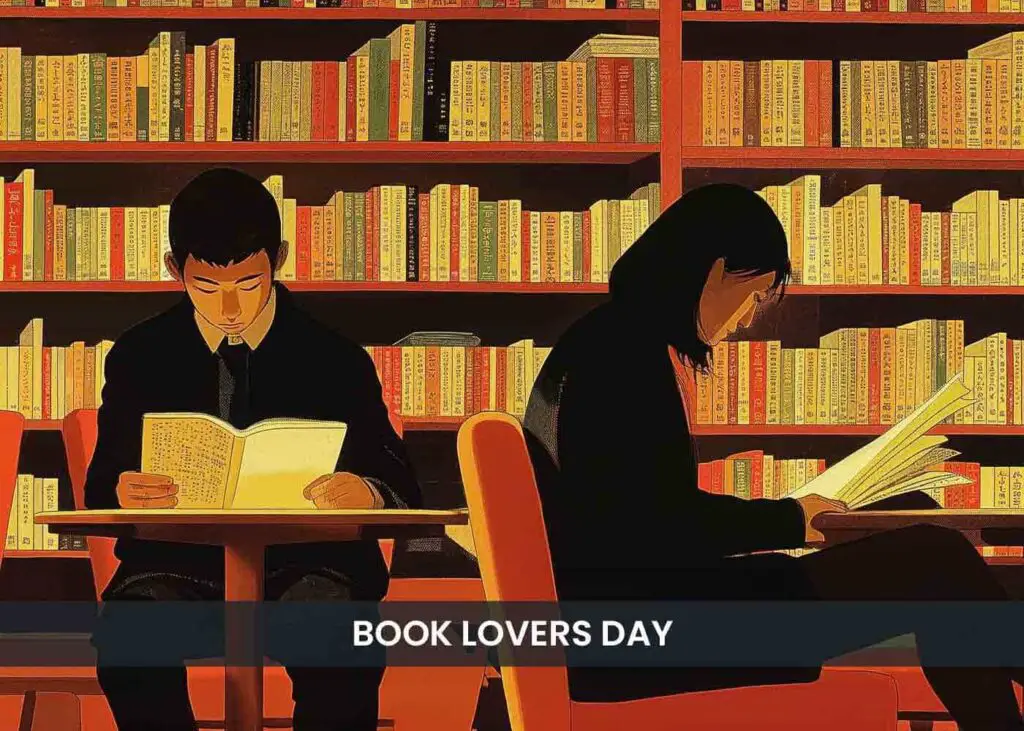
Book Lovers Day: Unveiling the Joy of Reading Celebrations
Book Lovers Day, celebrated on August 9th each year, is a special occasion dedicated to all who relish the written word. It serves as a reminder of the joy that books bring into our lives, whether it be through the thrill of a new adventure, the insights from a historical account, or the comfort of a favorite classic. This day encourages readers to find a quiet corner, a cozy chair, and lose themselves in the pages of a great book.
The origin of Book Lovers Day is not definitively known, which adds to its charm and mystery, but it’s clear that the day has found a place of importance among bibliophiles who look forward to it each year. Bookstores, libraries, and literary communities often mark this date with special events, readings, and promotions aimed at fostering a love for books. Social media buzz with hashtags and shares as readers post their current reads, book stacks, and recommendations.
Engagement with literature is more than just a hobby; it’s a way to explore new worlds, cultures, and perspectives. On August 9th, readers everywhere are united by their passion for literature and the written word. It’s an opportunity for people to share their favorite titles, discuss influential authors, and perhaps even pass on a cherished book to a friend, spreading the love and appreciation for a pastime that has stood the test of time.
1. Celebrating Book Lovers Day
Each year, Book Lovers Day is a special occasion dedicated to all bibliophiles who cherish the rich history and the joy of reading. It offers a chance to honor the cultural impact of literature and the evolution of books from ancient to modern times.
Historical Significance
It is believed that National Book Lovers Day may have originated to recognize the importance of books in our culture and history. Its origin can be linked with the contributions of Johannes Gutenberg, who revolutionized the printing process in the 15th century. Before his work, books were laboriously copied by hand onto materials like papyrus, calf skin, or clay tablets, with ancient civilizations such as those in China employing woodblock printing methods. The transition from scrolls to bound pages marked a significant leap in the sharing of knowledge.
Modern Day Observances
Today, Book Lovers Day is an event typically celebrated on August 9th each year, with 2021 being one of the recent years that has seen various observances. Enthusiasts might join a book club, participate in a book exchange, or visit their local indie bookstore or library to show their appreciation for literature. These modern-day traditions allow readers to connect with others and share their passion for books.
Recommended: Read free classic books at PageVio.
Gift Ideas for Bibliophiles
When considering a gift for a book lover, there are many thoughtful options:
- Bookmarks: Personalized or crafted bookmarks.
- First Editions: A rare first edition can become the centerpiece of a collection.
- Bookshelves: Sturdy bookshelves or unique bookshelf designs.
- E-Readers: Devices like the Kindle for those who prefer digital reading.
- Literary Accessories: Items such as a reading lamp, book holders, or literary-themed tote bags.
Choosing a gift that aligns with the recipient’s interests will surely be appreciated and enhance their reading experience.
Recommended: Free Literature Wallpapers | Free Poetry Posters | Free Bookish Calendar
You might be interested: Check out our shop for literary products or support us at Patreon for literary rewards.
2. The Impact of Technology on Reading
The intersection of technology and literature has revolutionized how readers engage with books, providing new formats and unprecedented access while ensuring the preservation of written works.
Evolution of Reading Formats
Historically, literature’s journey began with papyrus and parchment, advancing with the disruptive innovation of Johannes Gutenberg’s printing press. This leap enabled the mass production of books, previously a labor-intensive endeavor bounded by the scarcity of leather and ink. The transition to the Digital Age introduced e-books, represented by devices such as Amazon’s Kindle and various E-readers, which offered a new dimension of convenience. Lightweight and portable, these devices can store thousands of books, transitioning from physical paperbacks to digital libraries neatly contained on compact screens.
- Early Formats: Papyrus, Parchment, Leather-Bound Books
- Printing Technology: Gutenberg’s Printing Press, Use of Paper and Ink
- Modern Devices: Kindle, E-readers, Smartphones, Computers
Digital Age and Accessibility
The proliferation of smart devices has broadened access to literature exponentially. Audiobooks, a digital form enabling the consumption of books through listening, have gained popularity for their ease of use via smartphones and computers, assisting those unable to read traditional print. Digital platforms like Goodreads have created virtual book clubs and communities, fostering discussion and sharing of books among readers worldwide. Libraries have adapted by offering e-book lending services, catering to a society increasingly inclined toward the use of personal electronic devices.
- Accessibility Tools: E-books, E-readers, Audiobooks
- Community Engagement: Goodreads, Online Book Clubs
- Library Services: E-book Lending, Digital Collections
Preservation of Literary Tradition
Digitalization is instrumental in preserving literature. Digitized versions protect books from physical decay and make rare manuscripts available to the public that were once secluded within the walls of exclusive libraries. Furthermore, the digital archive has become an impervious shelter for books against the ravages of time, where works on fragile papyrus and brittle paper find new life in the realm of bits and bytes. The enduring nature of digital formats ensures literary tradition continues for future generations.
- Digital Archives: Safeguarding against decay and loss
- Wider Availability: Rare manuscripts accessible online
- Endurance of Literature: Ensuring continuity of literary heritage




